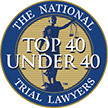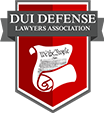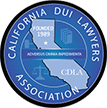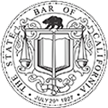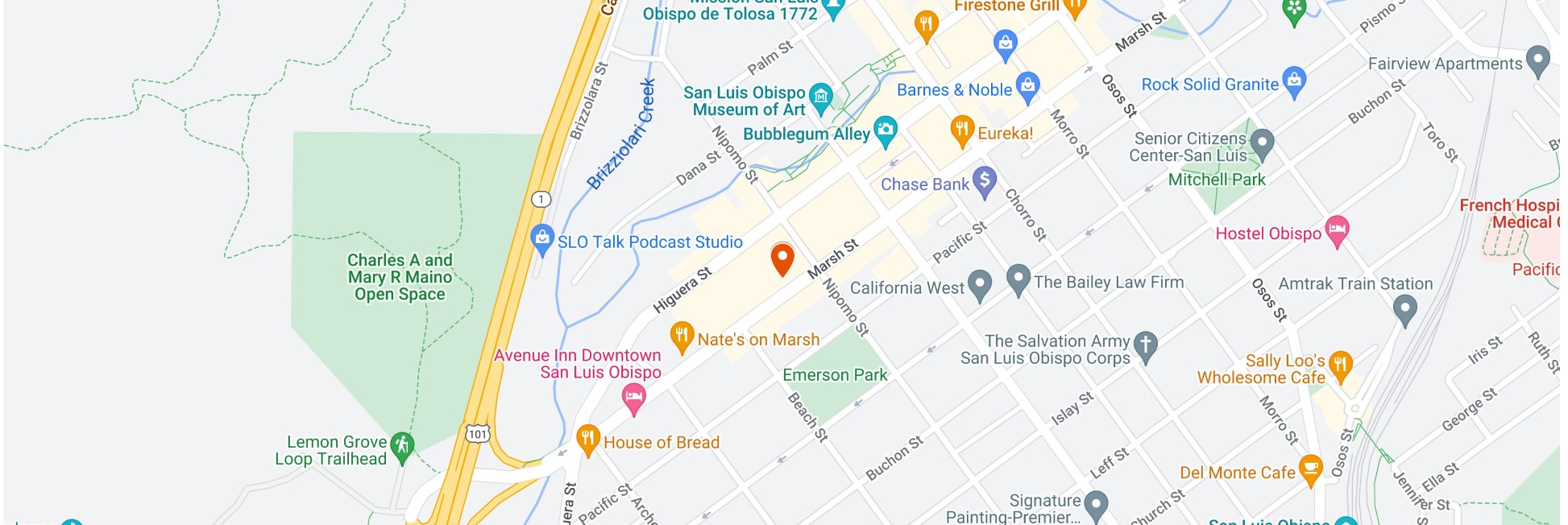San Luis Obispo is a specular coastal city rich in religious history, outdoor activities, and vineyards. Also known as the “happiest city in the country,” there are many opportunities to enjoy. And while there is much to engage in, some people go a little overboard on the fun. That is when aggravated driving under the influence happens.
Aggravated DUI is a condition or circumstance on top of the underlying drunk driving charge. It can result in lengthy incarceration, higher fines, more community service hours, and extended driver’s license suspension. If arrested with aggravated DUI, you should hire an attorney. The skilled lawyers at San Luis Obispo DUI Attorneys can review the case facts to determine the most effective steps to take and develop legal strategies to reduce or dismiss the charges. We can advise on whether to take the prosecutor’s plea bargain offer.
California Aggravated DUI
In California, it is illegal to drive your car while under the influence of drugs or alcohol or with a blood alcohol concentration of 0.08% or higher. Typically, California laws offer sentencing guiding principles for motorists found guilty of driving under the influence (DUI). In layman’s language, there are numerous penalties that the judge can order for a conviction. Circumstances like the case facts and your criminal record determine the range. The judge uses aggravating and mitigating factors to determine the sentence within the appropriate range.
Mitigating factors are circumstances or facts that lower the defendant’s guilt or warrant more lenient sentencing. On the contrary, aggravating factors are facts that enhance the severity of a crime or the defendant’s guilt and warrant harsher penalties.
While aggravating and mitigating factors inform prosecutors and judges of penalties warranted within the permitted range, the law specifies circumstances and facts requiring more severe penalties. They include:
- Multiple victims.
- Minor passenger.
- Excessive speed.
- Drunk driving in safety enhancement and construction zones.
- Having a blood alcohol concentration of 0.15% or higher.
- Refusing to submit to a chemical test.
- Causing an accident.
- Being below 21 during the crime.
Chemical Test Refusal
Once arrested, you cannot refuse to submit to a breath test without facing the consequences under the implied consent laws. It applies even if you have submitted to a preliminary alcohol screening test (PAS).
The law applied to both breath and blood tests. Nevertheless, the United States Supreme Court issued Birchfield v. North Dakota. Birchfield decision in 2016. The decision held that it is illegal for a state to criminalize blood test refusal without a lawful warrant. It dealt with states that made it a separate offense to refuse to take a chemical test following an arrest. On the contrary, the Golden State imposed enhanced penalties and consequences on defendants for blood test refusals.
You are not legally required to refuse a post-arrest chemical test because you believe you were wrongfully arrested. However, if the judge later discovers that your traffic stop was illegal, your criminal charges will be dismissed, even if the test shows that you were intoxicated.
Refusing to comply with the police officer’s instructions in any manner constitutes a chemical testing refusal. While the chemical test refusal concept may look straightforward, it is not. Numerous situations are deemed as a refusal, including:
- The defendant has only one opportunity to take the chemical test — If they refuse to submit to a chemical test, they are not entitled to change their mind. The police officer is not legally required to give them another chance.
- Failing to choose a chemical test — The defendant has no constitutional right to hire a lawyer before the chemical testing.
- The defendant is not entitled to have their doctor present during their chemical test.
Penalties for Chemical Testing Refusal
Generally, there are two consequences of chemical test refusal.
First, you are subject to enhanced penalties for the chemical testing refusal on top of your conviction. These enhanced criminal consequences include:
- A first-time DUI crime will carry nine months in DUI school and an additional and consecutive 48 hours in jail.
- If convicted of a second drunk driving crime within ten years, you will spend an additional and consecutive 96 hours in jail.
- Your third-time crime within ten years attracts an additional ten days in jail.
- A subsequent offense within the look-back period carries an additional eighteen days in jail.
While refusing to submit to a chemical test can enhance your DUI penalties, the conduct can positively affect your criminal case. Without your urine, breath, or blood test results, the district attorney can believe the arresting police officer is incredible, making it challenging for the officer to convince the judge of the guilt. In this case, the DUI charges can be reduced or dismissed.
Second, a DUI chemical test refusal will result in the Department of Motor Vehicles suspending your driver’s license. You should request an administrative hearing with the California DMV to fight the suspension within ten days following your arrest. Requesting the hearing will postpone the suspension, pending your hearing outcome.
If you win your hearing, the DMV will not suspend your license. However, if unsuccessful, you will face the following potential penalties:
- Driver’s license suspension for a year for your first-time DUI crime.
- Driver’s license revocation for two years if it is the second DUI crime within the lookback period.
- Driver’s license revocation for three years if it is the third DUI crime within the lookback period.
DUI with a Child in Your Car
Per Vehicle Code 23572, a California misdemeanor, drunk driving carries enhanced penalties if you drive with a minor passenger below 14 in your car. The sentence enhancement applies regardless of the following:
- Your BAC or degree of intoxication.
- Your driving patterns.
- Whether you intended to injure the minor.
The enhanced jail time includes the following:
- An additional forty-eight (48) hours in jail after your first drunk driving conviction.
- An additional ten (10) days in county jail after the second DUI crime.
- An additional thirty (30) days in county jail for your third-time DUI offense.
- An additional ninety (90) days in county jail for your fourth drunk driving.
Can You be Charged with Both Drunk Driving and Child Endangerment?
If arrested for this crime, the prosecutor can decide to file either of the following charges:
- Child endangerment under Penal Code 273 (willfully exposing a person below 18 to unjustifiable suffering, pain, or danger)
- DUI sentence enhancement under VC 23572
- Both DUI with the minor passenger and child endangerment
However, you cannot be found guilty of both drunk driving enhancement in question and child endangerment. In this case, the court cannot impose enhanced VC 23572 penalties.
Legal Defenses to DUI with a Minor Passenger
The skilled defense lawyers at San Luis Obispo DUI Attorneys will review your case facts and develop the legal defenses to fight criminal charges. Common legal strategies include proving that:
- The defendant was not guilty of drunk driving — An individual is only subject to this DUI enhancement if they are convicted of drunk driving. That means it is a legal defense to challenge their underlying criminal charge. If they prevail, the enhancement will not apply.
- The child was not 14 — You can only receive this sentence enhancement if you had a child in your car during the arrest. Consequently, you can argue that the baby in your car was older than fourteen years.
- The police did not have probable cause — Police officers should only stop and arrest you if they have probable cause (reasonable belief or suspicion) that you violated the law. By itself, you can challenge the criminal charge by proving that the law enforcers did not have probable cause to stop you.
Enhanced Penalty for Reckless Driving and Excessive Speed
Before imposing this sentencing enhancement, the prosecution must establish the following:
- The accused drove while drunk
- The defendant operated their car at excessive speed during their DUI crime
- The defendant operated the car recklessly while drunk
You Drive at Excessive Speed
VC 23582 defines excess speed as:
- More than 30 miles per hour the posted, maximum, or prima facie speed limit on a freeway.
- More than 20 mph the posted, maximum, or prima facie speed limit on public streets.
The posted speed limit is described on signs on streets and freeways. They specify the speed for a given roadway stretch. On the other hand, a prima facie or maximum speed limit is the speed limit that applies when there are no posted speed limit signs. The most common California prima facie and maximum speed limits include:
- 25 mph on public streets.
- 55 miles per hour on two-lane highways.
- 65 mph on other highways.
Moreover, the state has a speeding law under VC 22350 that makes it unlawful to operate a car faster than it is rationally safe, given traffic, road, and weather conditions.
The Defendant Drove Recklessly
You drive recklessly when you operate a car with a willful or wanton disregard for the safety of property or people. Willful or wanton disregard implies that you knew your actions were likely to hurt another, but you intentionally ignored that risk.
It is a high standard that requires the possibility that drunk driving will injure another.
Because reckless behavior requires intentional acts, the defendant cannot be sentenced for reckless driving founded on their negligence. It holds even if their negligence becomes criminal negligence or gross negligence.
Penalties for Reckless Driving and Excessive Speeding While Drunk
If found guilty, you will spend an additional and consecutive two months in county jail. Additionally, you should complete a drug/alcohol counseling and education program.
Underage DUI
Under California VC 23136 (zero tolerance law), it is a crime for a person below 21 to operate a car with a blood alcohol concentration of 0.01 percent or higher. It applies to every alcoholic beverage and medicine. Additionally, it applies regardless of whether your driving was impaired or not. In other words, you break the zero-tolerance law, provided you have any measurable alcohol amount in your bloodstream.
A preliminary alcohol screening is a test that measures BAC. The police administer the roadside test on a breathalyzer that measures the alcohol amount in your breath and then converts it to an approximately corresponding blood alcohol amount.
Violating VC 23136 is not an offense. The only penalty is a mandatory suspension of your underage driver’s license. The length of the suspension for a first-time crime is a year. However, the DMV can revoke the license for two (2) or three (3) years if you have previously violated DUI laws.
If the minor driver operated their car with a blood alcohol concentration of 0.05% or more, they would face an infraction. The crime will not attract incarceration but:
- Withdrawal of driving privileges for a year (for their first-time crime).
- One hundred dollars in fine (for the first-time crime).
- If the motorist is above 18, they must enroll in a minimum three-month DUI school.
And if you, the underage motorist, are found guilty of DUI with a blood alcohol concentration of 0.08% or greater, you will be charged with standard DUI. It is a California misdemeanor. If no person is injured, the judge will subject you to the following consequences for your first crime:
- Driver’s license suspension for a year.
- Up to one thousand dollars in fine.
- Three (3) to five (5) years of summary (informal) probation.
- Nine months in DUI school.
- Six (6) months in jail.
Refusing to take your chemical test can lead to your driver’s license suspension for a year. Moreover, the DMV can revoke your license for at least two years if you have a previous DUI, wet reckless, or chemical test refusal convictions.
You Can Challenge Your Driver’s License Suspension
You can challenge the license suspension by requesting a hearing within the DMV. You should do this within ten days of your arrest.
The DMV hearing officer will cancel the revocation or suspension if you win the hearing. However, losing your hearing does not mean all is lost. You can:
- Request a restricted license if your suspension did not result from a chemical test refusal.
- Appeal the DMV hearing officer’s verdict.
A restricted license permits an underage motorist to drive to and from school or work.
Having a Blood Alcohol Concentration of 0.15% or Higher
The California legislature recognizes that every DUI crime is unique and that motorists with higher BAC generally pose a higher risk for injuries and accidents. Per Vehicle Code Section 23152(b) VC, it is an offense to operate your car with a blood alcohol concentration that exceeds 0.08 percent. In 2006, the California legislature added VC 23578 with sentencing enhancements for motorists with BAC above 0.15 percent.
The 0.15% BAC is twice the legal limit, and a driver at this intoxication level can be a risk to themselves and other road users. Those convicted face enhanced criminal penalties.
If found guilty of drunk driving with a BAC of 0.15%, you should complete a six-month AB762 alcohol education and counseling class or a nine-month AB1353 class. You will also be required to comply with probation terms like:
- Serving jail time.
- Completing programs like Mothers Against Drunk Driving Victim Impact Panel or Hospital and Morgue (HAM).
- Community service.
- Any other requirements that the judge deems appropriate.
While the California Department of Motor Vehicles does not issue a longer driver’s license suspension for motorists with high BAC, the DMV does not reinstate driving privileges until a motorist has completed their compulsory alcohol education and counseling program. It means you have a restricted or suspended license, provided you have not completed your alcohol education program. It also means you will have an ignition interlock device (IID) installed in your vehicle during this time.
An ignition interlock device is installed on the defendant’s vehicle. It should be a car that the accused consistently uses or owns. The device does not allow the engine to initiate unless you blow into the breath-testing portion of the gadget. If the IID detects the presence of alcohol on your breath, it will not start. If no alcohol is detected, your car’s engine will start, and you can drive the vehicle.
If you have been charged with DUI with excessive BAC, you need a lawyer. The legal team at San Luis Obispo DUI Attorneys has extensive knowledge, skills, and experience to obtain you a favorable case outcome. To achieve this, the attorneys will analyze every fact surrounding your traffic stop, arrest, and your statement to the police. Using this information, the defense lawyer can develop the most effective legal defense, including:
- The police officer did not administer the chemical test properly.
- The law enforcer waited too long to administer the breath test.
Find an Experienced Driving Under the Influence Attorney Near Me
If you are charged with drunk driving in California, you will face life-changing criminal penalties. However, if there are aggravating factors, you have a lot to lose if there are aggravating factors because the consequences become more severe.
Every case is unique and carries different ramifications, making it essential to engage San Luis Obispo DUI Attorneys to discuss the case facts, potential penalties, and outcome. We are experienced and have the in-deep legal knowledge and resources required to aggressively fight for your freedom and rights and navigate the legal system. Please contact us at 805-321-1000 to schedule your free consultation and learn your options.


